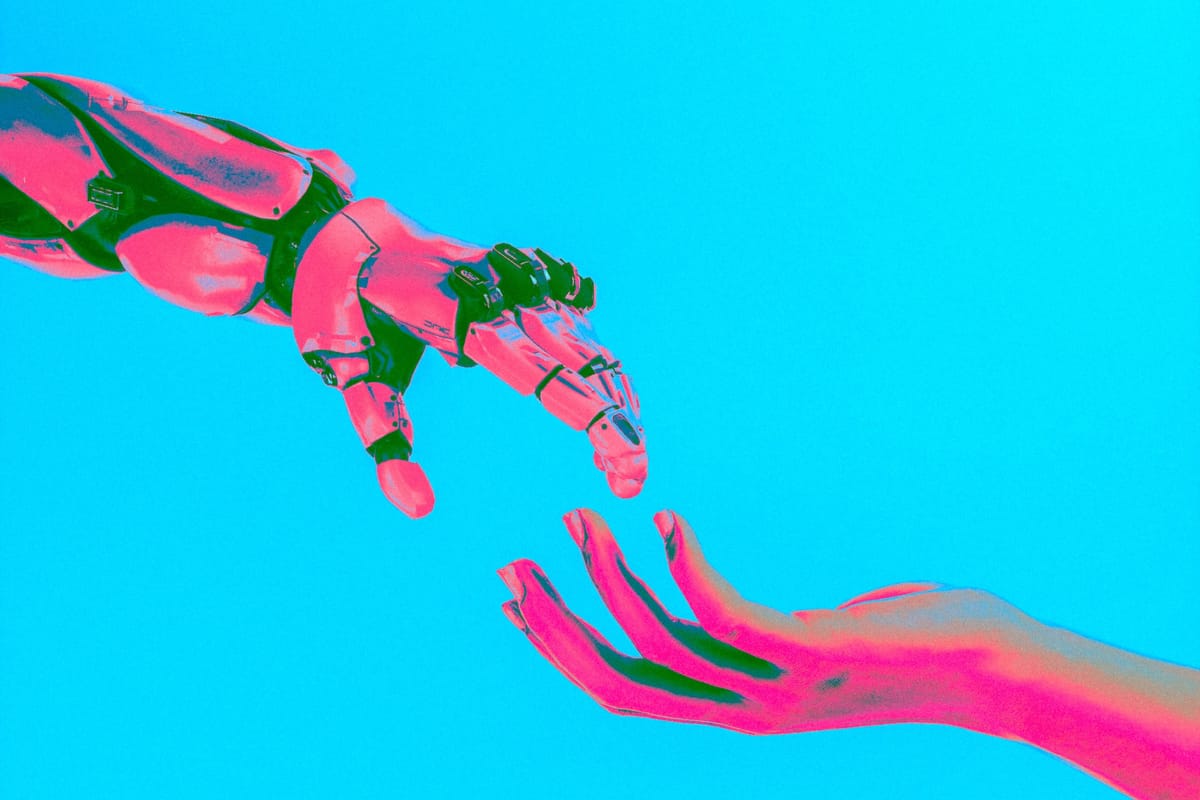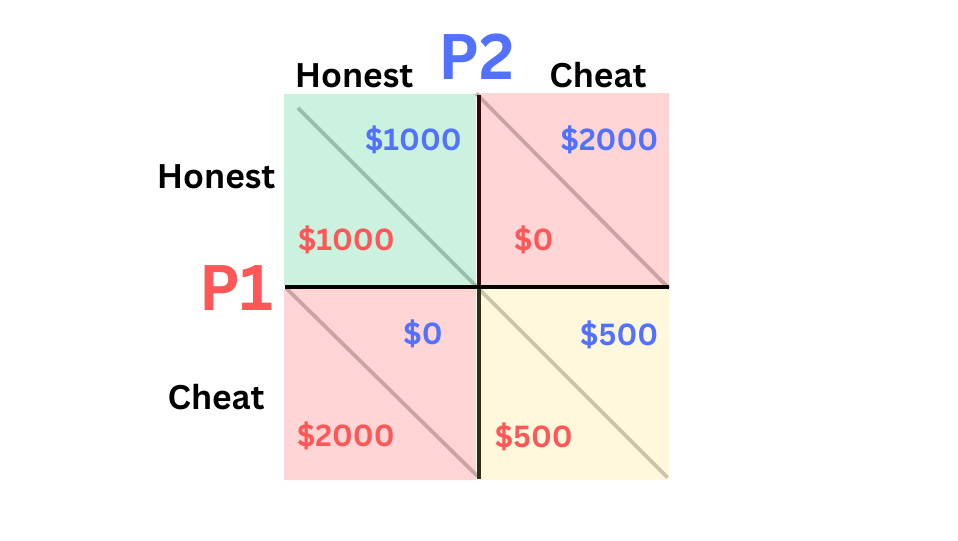The AI Regulation Prisoner's Dilemma

Artificial Intelligence (AI) has spawned a global tornado of excitement, but our fear is growing. Tech leaders like Bill Gates, Sundar Pichai, and Sam Altman are calling for government regulation. AI's rapid development hasn't given us time to understand the implications.
Not only are regulations unlikely to pass, but they are against every country's best interest.
Background
The prisoner's dilemma is a game theory thought experiment. You and a second player (P2) play a game that rewards money depending on choice. The amount given depends on how each player acts in the game: "honest" or "cheat."
If you and P2 act honestly, you're each given $1000. But if you act honestly and P2 doesn't, you get $0, and P2 gets $2000. If you both cheat, you each get $500.

If both players are honest, the reward is distributed fairly. However, you cannot know what P2 will do or try to coordinate with them. It's always in your best interest to cheat since cheating guarantees you at least $500.
AI regulation could be awesome
Regulation could ensure AI isn't used maliciously and set practical boundaries on development. This would give countries enough time to design AI intentionally and avoid ethical/moral problems or loss of control.
The snag is that every country has to participate in regulation to guarantee their AI tech doesn't fall behind non-regulated countries. Akin to acting honest in the prisoner's dilemma. This scenario is impossible, given the cultural and political differences among countries.
Even if regulation is passed, there's no incentive to enforce it. It's in every country's best interest to accelerate their AI tech. The few that regulate will be left in the technological dust of their allies and rivals. AI is a matter of national security, so every country wants to be a front-runner.
Total Takeover?
Like the internet boom, AI will quickly sink its teeth into all domains of modern life.
The good side is improved technology, healthcare, learning, creativity, and everything else. The possible cons: Radical job market shift, an AI arms race, losing control of the machines.
I remain optimistic. Humans have managed to avoid dystopia with every historical breakthrough. Progress never comes without risk, but we have a track record of adopting change and thriving because of it.